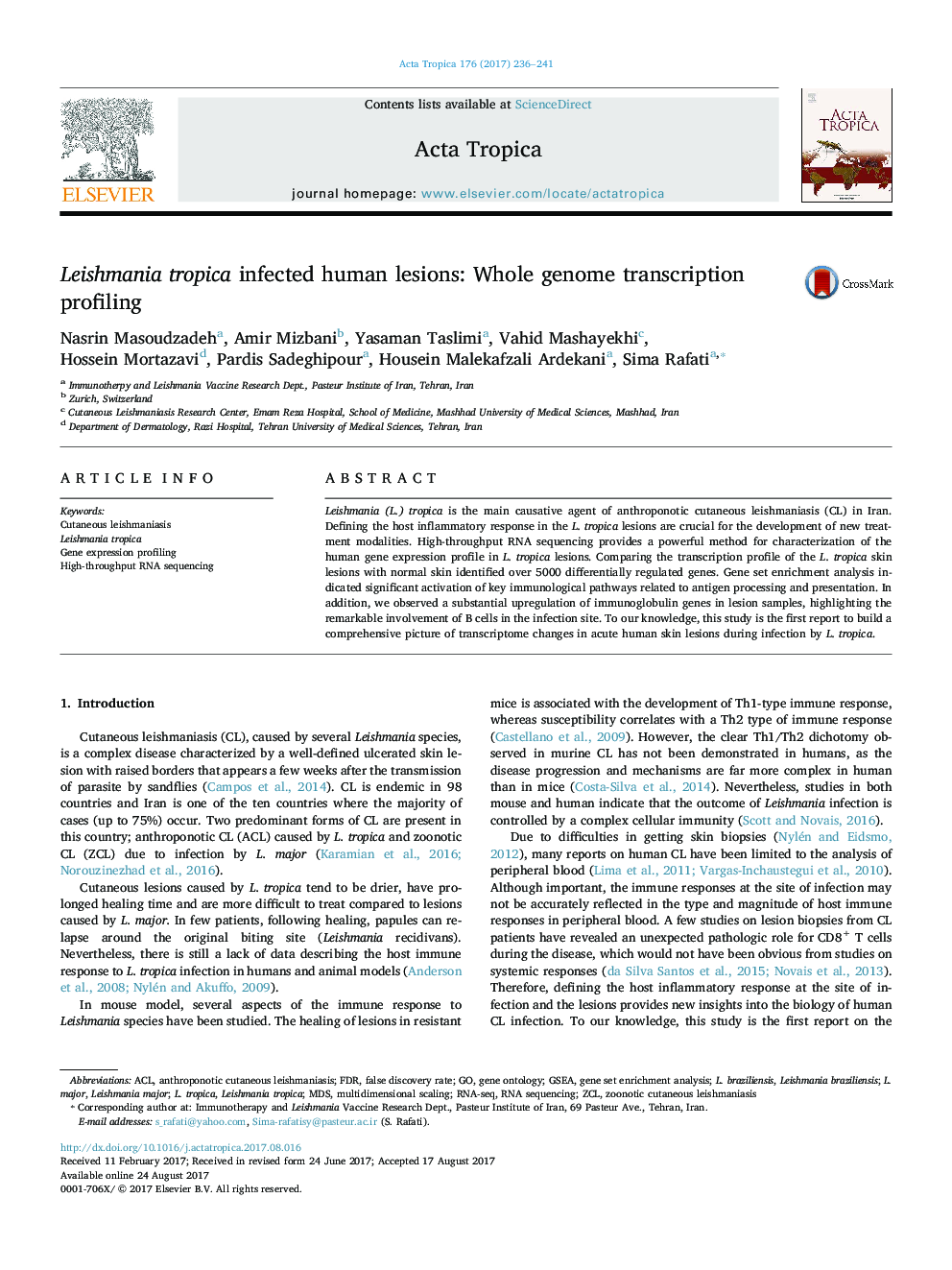| کد مقاله | کد نشریه | سال انتشار | مقاله انگلیسی | نسخه تمام متن |
|---|---|---|---|---|
| 5671034 | 1592748 | 2017 | 6 صفحه PDF | دانلود رایگان |

- The molecular pathways shaping host immune response in localized L. tropica cutaneous infection in human are not very well understood.
- Characterization of human gene expression of skin biopsies of L. tropica infected lesion is possible by high-throughput RNA sequencing.
- Expression of immunoglobulins production in the inflammatory site of L. tropica indicates activation of antigen processing and presentation.
Leishmania (L.) tropica is the main causative agent of anthroponotic cutaneous leishmaniasis (CL) in Iran. Defining the host inflammatory response in the L. tropica lesions are crucial for the development of new treatment modalities. High-throughput RNA sequencing provides a powerful method for characterization of the human gene expression profile in L. tropica lesions. Comparing the transcription profile of the L. tropica skin lesions with normal skin identified over 5000 differentially regulated genes. Gene set enrichment analysis indicated significant activation of key immunological pathways related to antigen processing and presentation. In addition, we observed a substantial upregulation of immunoglobulin genes in lesion samples, highlighting the remarkable involvement of B cells in the infection site. To our knowledge, this study is the first report to build a comprehensive picture of transcriptome changes in acute human skin lesions during infection by L. tropica.
Journal: Acta Tropica - Volume 176, December 2017, Pages 236-241